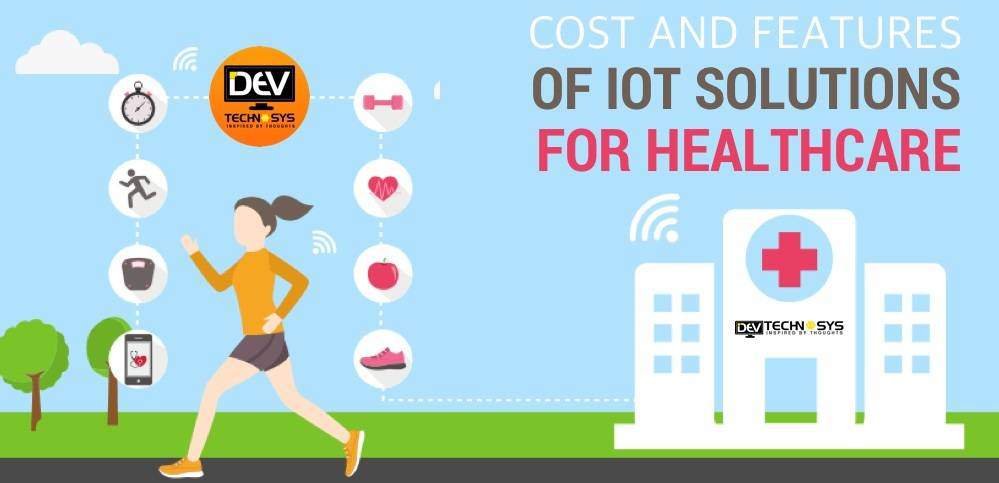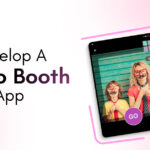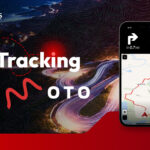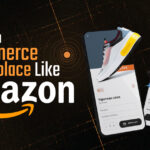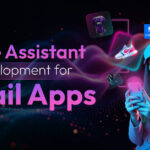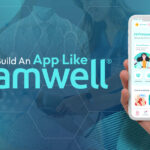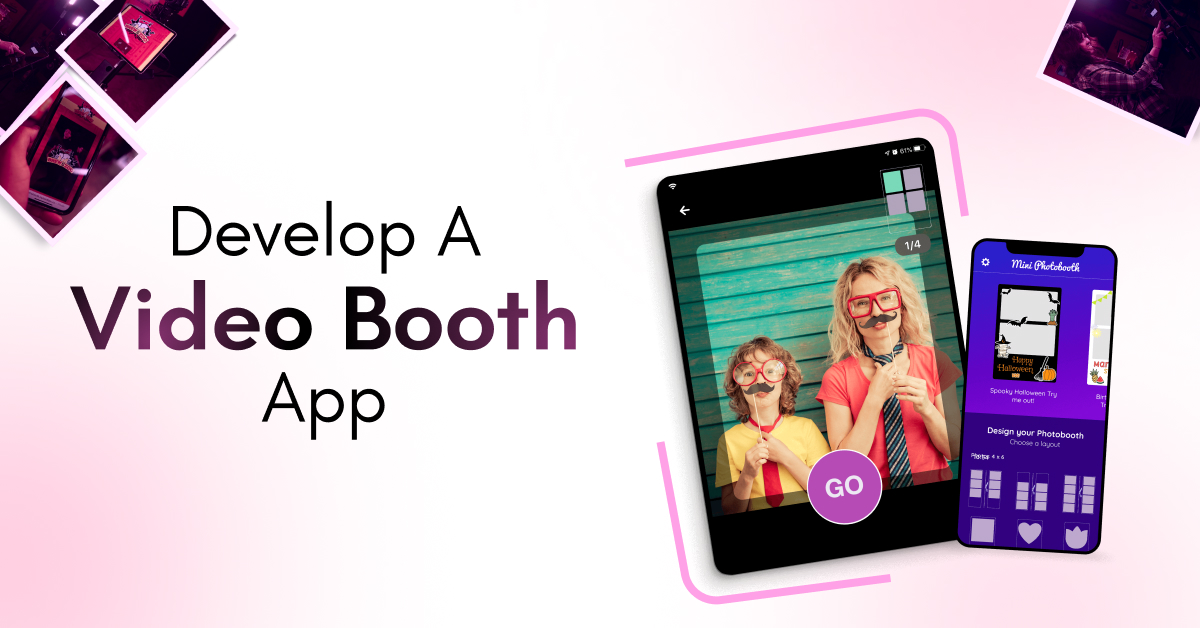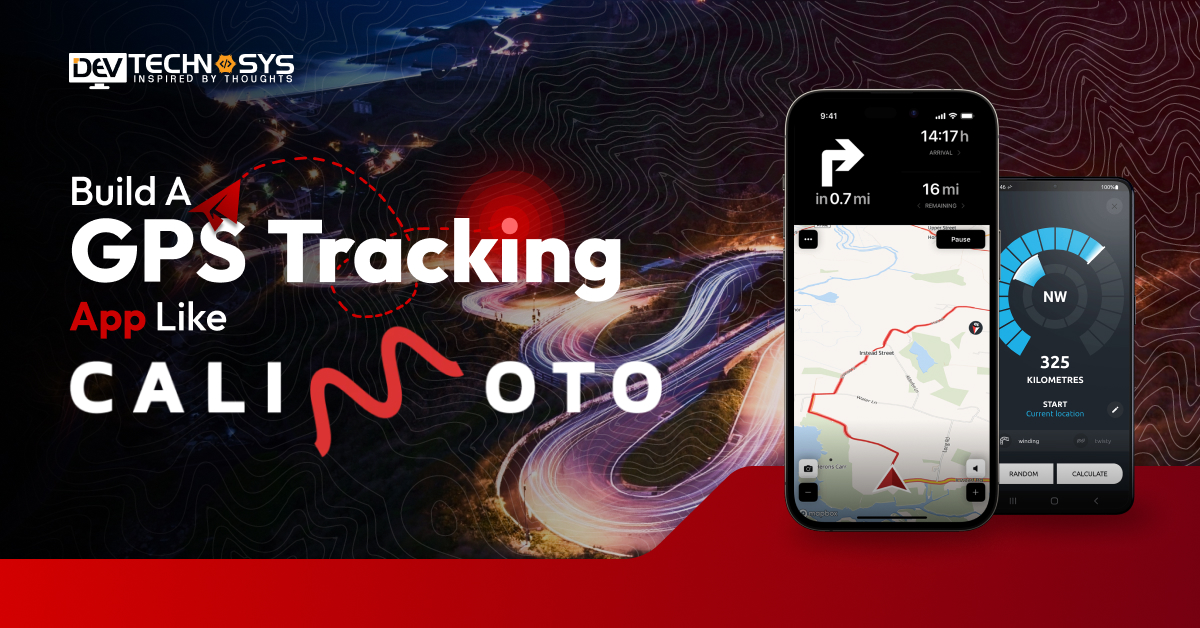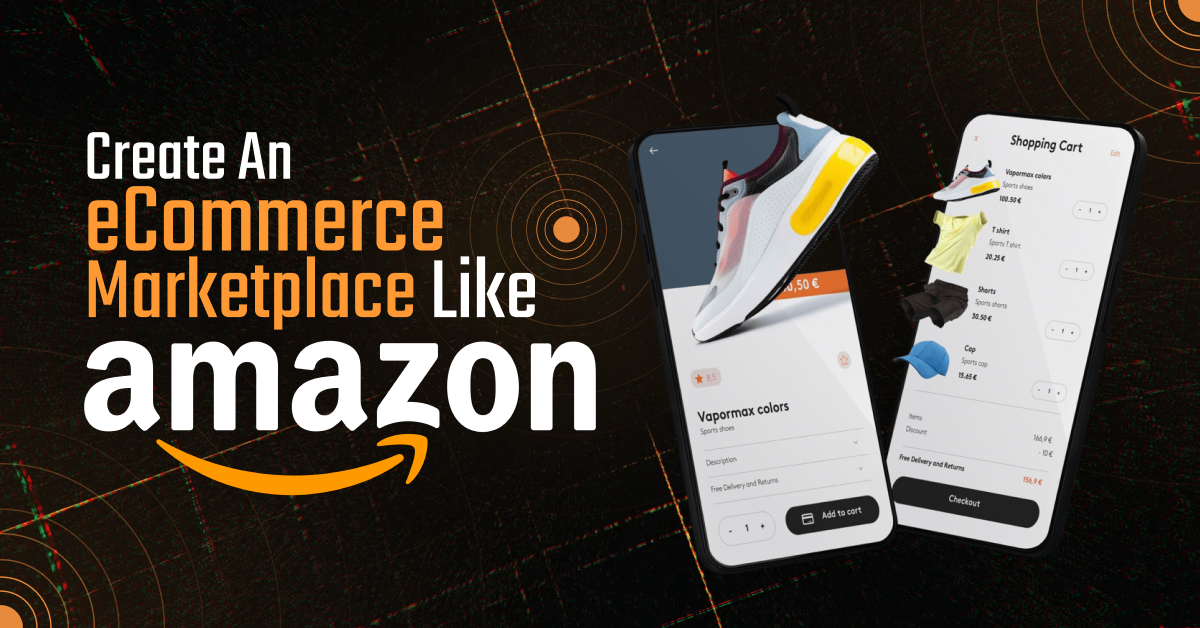The Internet of Things is a component that many different businesses are starting to place more and more emphasis on as the world gets more digital. Healthcare is no different, and IoT’s influence in this sector is expanding quickly.
IoT applications in healthcare are widespread around the globe. They range from improved machine control to virtual medical help. IoT applications in healthcare are so futuristic that it is hard to imagine what IoT is or how it functions. Modern technology can save lives by allowing for a rapid diagnosis of disease and finding a cure.
In this blog, we will look at the cost and features of IoT solutions for healthcare. We will also go through some of the benefits and challenges of putting the technology into practice in the sector.
Let’s start now.
What is IoT in Healthcare?
Internet of Things (IoT) in healthcare is the integration of smart interconnected devices with the healthcare industry. This enhances the management of healthcare and patient care. IoT in Healthcare involves the use of medical devices, wearable technology and sensors which can collect, transmit and analyze data about patients in real time.
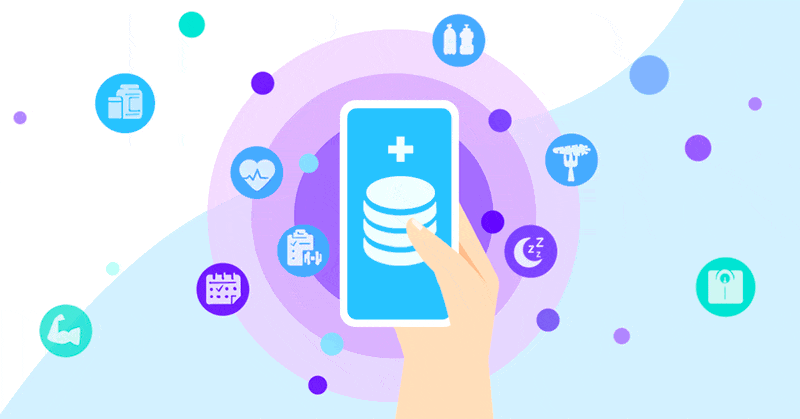
These devices can test vital signs, monitor activity levels, track medication compliance, and aid with remote monitoring. IoT devices collect data that allows healthcare professionals to get valuable insights about patients’ health, detect issues early, and provide more personalized and timely treatment.
Additionally, IoT solutions for healthcare facilitate seamless communication and data sharing among different healthcare systems, improving the overall efficiency, accuracy, and coordination of medical services.
IoT Healthcare Market Statistics
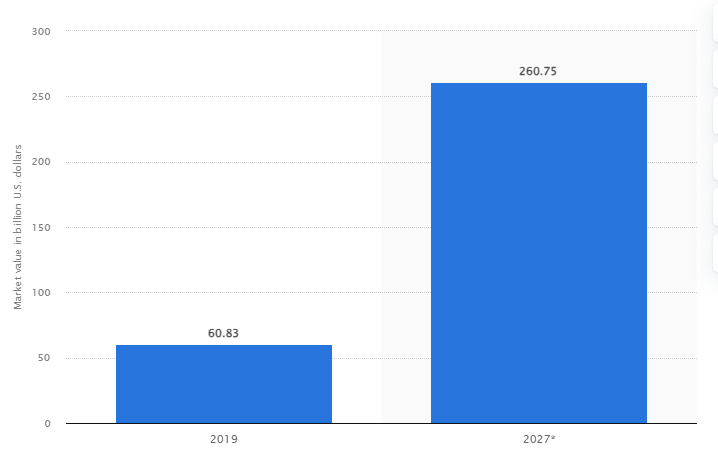
- The worldwide IoT market for healthcare was valued at about 61 billion dollars in 2019. In 2027, the market is projected to expand by more than 260 billion dollars.
- By 2023, the Healthcare IoT Market is projected to reach US$93.82 billion in sales.
- By 2028, the market is projected to generate US$167.70 billion in sales at a CAGR of 12.32% each year (2023-2028).
- Comparatively, the United States will produce the most income (US$8,283.00m by 2023) in the world.
- The global IoT revenue for healthcare was 24 billion US dollars in 2016. By 2025, estimates project that this number will surpass 135 billion US.
- It was anticipated that as time went on, there would be more active IoT connections in the healthcare industry. There were 0.87 million connections that were active in 2016. It is anticipated to rise to 10.34 million by 2025.
Why is IoT Essential in Healthcare?
The Internet of Things is vital in the healthcare industry because it brings together the power of technology and data to significantly improve patient care and overall healthcare management. So as per healthcare application development company, below are some points that states why IoT solutions for healthcare is essential:
1. Enhanced Remote Monitoring:
IoT devices enable healthcare professionals to monitor the health status of patients remotely in real time. Patients can now be monitored from their own homes, which reduces the need for frequent visits to the hospital and allows more personalized care.
2. Early Detection of Health Problems:
IoT enabled devices can collect and analyze patient data continuously, helping to identify health issues at an early stage. Early detection allows doctors to intervene quickly, preventing complications, and improving treatment outcomes.
3. Improved Efficiency and Workflow:
IoT devices improve efficiency and workflow. They streamline healthcare processes, and allow for efficient data sharing between different medical devices and systems. It allows healthcare providers to make faster decisions, resulting in more effective treatment and shorter waiting times for their patients.
4. Medication Management:
IoT is a great tool for smart medication management. These systems remind patients to take medications at the correct time and can provide feedback to healthcare professionals if a person misses a dosage. This will ensure better adherence to the treatment plan and reduce medication errors.
5. Preventive Healthcare
With IoT, healthcare providers can gather data on a patient’s lifestyle, activity levels, and vital signs over time. This information may be utilized to build personalized wellness plans, promoting preventive measures and encouraging healthier habits.
Benefits of IoT in Healthcare
IoT applications and smart devices in healthcare are designed to help three main user groups: medical specialists, patients, and medical institutions. Here are some IoT healthcare benefits given by an IoT development services provider.
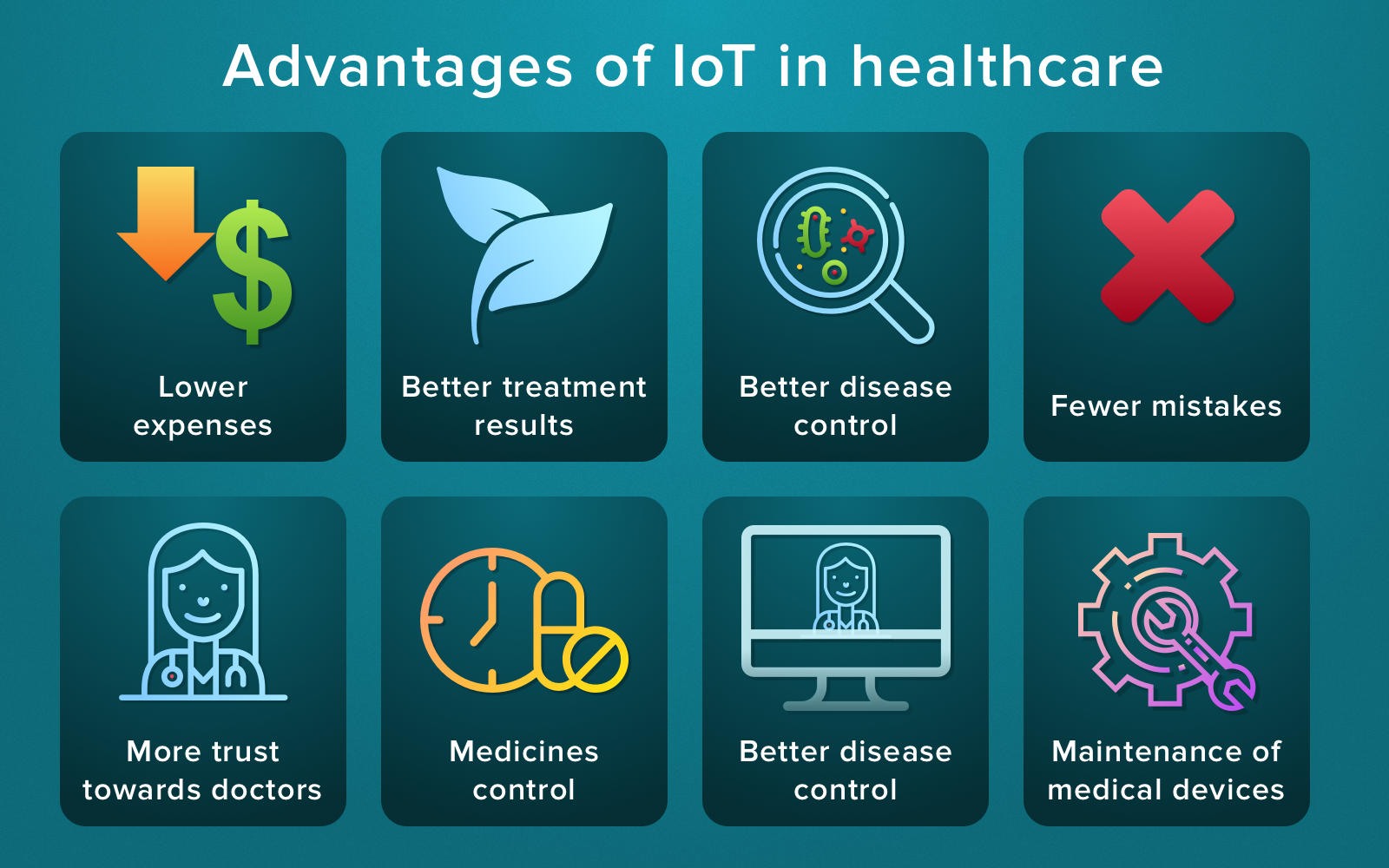
● Cost-Efficiency
IoT devices and apps for remote health monitoring & treatment can reduce costs. By allowing patients who are not in a critical condition to remain at home, it reduces hospitalizations and frequent doctor visits. Healthcare facilities can benefit from streamlining and automating many tasks & increasing their staff productivity.
● Better Treatment
Allows physicians to make educated judgments based on the available data and guarantees complete openness. IoT devices gather statistical data that enables medical care to be tailored to actual patient issues. Improved visibility for doctors helps in diagnosis and healthcare planning.
● Early Disease Diagnosis
IoT’s analytical skills aid in the early or even pre-symptomatic diagnosis of illnesses by physicians. Doctors may make proactive decisions with the support of ongoing patient monitoring, which gives them access to real-time information.
● Reduction in Errors
For more effective control of healthcare operations, IoT gathers data from devices. Reduced diagnostic mistakes, improved healthcare outcomes, and quicker are all benefits of automated data gathering and processing.
Additionally, you must begin with a specific Proof of Concept if you are developing IoT solutions for healthcare. You can pay an IoT app development company to implement a proof-of-concept (PoC) and verify technological viability if you lack IoT programming experience.
● Personalized Care
IoT devices and wearables are able to be programmed to remind patients of their doctor’s appointments, calories, level of exercise, etc. IoT is especially beneficial to elderly patients and people who live alone. It provides an alert system. It alerts family members and healthcare providers to the disruption in their daily routine.
Read More: Impact of IoT on The Business Sector
Top 5 Trending Healthcare Applications
There are multiple apps in the market but we have listed the top trending healthcare applications. So let’s have a look:
Healthcare Apps |
Available Platforms |
Downloads |
Ratings |
|
HealthTap |
Android | iOS | 1M+ |
4.6 |
|
WebMD |
Android | iOS | 10M+ |
4.3 |
|
PEPID |
Android | iOS | 100K+ |
4.4 |
|
PocketRx |
Android | iOS | 100K+ | 4.7 |
| Teladoc | Android | iOS | 1M+ |
4.1 |
1. HealthTap
PEPID, one of the top mhealth app examples for patients and pharmacies, allows users to connect and understand their medication better with pharmacists.
This is one of many clinical application examples which makes medical information accessible with a digital storage system. So if you want to develop an app like HealthTap for your healthcare venture, then you must consult with a mhealth app development company.
2. WebMD
WebMD offers convenient healthcare information. It also has a symptom-checker and medical reminders. WebMD also provides information on drug interactions, diagnosis, and research. It is used by more and more users to find accurate information on different medical issues.
3. PEPID
One of the most successful mHealth application platforms is PEPID. This application provides answers to millions of questions that real doctors have asked on a wide range of topics.
Posting it on the platform will allow you to use the app. Within 24 hours, a doctor will reply. The system also allows for scheduled live consultations between doctors, psychologists, and dentists to review your lab results, manage your prescriptions and view them.
4. PocketRx
To effectively manage medicine and healthcare needs, PocketRx is a user-friendly smartphone application. The app’s user-friendly design enables users to maintain dose regimens, create medication reminders, and get timely refill alerts. It provides consumers with access to a thorough pharmaceutical database where they may find out specifics about their medications.
5. Teladoc
Teladoc, an application which provides specialists for specific ailments and diseases. The application allows users to schedule an appointment, and then conduct the meeting through an online call.
Teladoc provides users with a 24×7 application that allows them to receive a second view. They can also add and update their medical records so that they receive personalized recommendations.
Key Features of IoT Solutions for Healthcare
By using IoT, it is possible to track patients’ health in real-time. So, doctors can measure their progress and monitor the health of the patients. You can track a number of health factors with smart devices that work with smartphones. So let’s check out the key features of IoT solutions for healthcare that are recommended by an Android app development company.
● Health Monitoring
IoT has helped establish a stable network between patients and doctors. Hospitals can now track patients remotely and provide quick health advice. The hospitals can now offer the necessary assistance and set reminders for their patients based on what they need.
Also, the health of patients has improved significantly as they no longer have to visit hospitals frequently for check-ups or stay in bed for long periods for treatment. The patients may continue to receive treatment while taking in the benefits of the open air.
● Smart Hospital Space
Cloud-connected sensors, such as window contacts and door contacts, light switches, ambient sensors, such as noise sensors and hydrometers, allow patients to customize their hospital stay according to their preferences. So if you also want to integrate such sensor features in your app, then you must consult with an iot app development company.
● Better Medicine Delivery
IoT has revolutionized the delivery of medicines. It is now very simple to deliver medicine at the preferred location by the user. The system will not be affected by any delays or health problems when delivering drugs. Using nanobots and a combination of IoT, smart devices and a wireless network, it’s now possible to deliver medicines to remote parts of the body for diagnosis and treatment.
● Track Medication’s Impact
Businesses prefer to hire healthcare app developers because they want each feature, including the tracking of medication integration in the app. IoT-based medication tracking allows doctors to monitor the effects of prescribed medicine dosages on patient condition.
Patients can also benefit from these apps. They can track their medication intake by using the in-app reminders and noticing symptoms after taking the medication. This app is compatible with smart devices and can be used to manage different medications.
● Tackling Emergencies
Hospitals are now taking emergency care to the next level after achieving a comprehensive health monitoring system in a stable environment. The real-time tracking of health and location sharing features have been combined to provide the patient with any needed assistance on time.
What Are The Challenges of Using IoT in Healthcare?
IoT challenges exist in healthcare, despite the fact that there are many advantages to employing the technology there. Healthcare institutions must be aware of any potential challenges they may encounter, when integrating IoT solutions for healthcare contexts.
● Security
Strict privacy and security regulations must be followed by hospitals, clinics, and other facilities. Many healthcare organizations, and especially large networks of hospitals, have to manage security for multiple facilities as well as large data repositories.
The use of IoT to improve security in the medical environment makes it easier to manage. To keep staff and patients safe, automated security programs can be used. The Nexos protocol, which uses power over Ethernet, is one of the most secure ones now in use. It’s a great choice for healthcare establishments with strict security requirements.
● Adoption
Adopting a new IoT Framework is one of the main IoT issues facing the healthcare industry. It can take a long time to change the entire facility, and initial costs and installation are a major barrier for rural clinics and smaller facilities.
IoT benefits in healthcare are far greater than the investment of time and money. IoT ecosystems in healthcare result in improved care, streamlined processes, savings, and other benefits.
● Integration
As there are so many distinct devices and protocols, integration may be a difficult undertaking. To get the most out of IoT, devices must be easily automated and controlled. IoT for medical care is not effective if all devices aren’t connected to an IoT platform.
PoE is a simple solution that connects various systems in a single platform. The users get a simple and streamlined experience, with a single dashboard to control all devices in the medical IoT ecosystem.
● Data
One of the most challenging healthcare IoT issues is data collecting. But it also has the most room for development. IoT systems produce a significant quantity of data. The architecture of an IoT system in a healthcare setting, as well as its data collecting priorities, must be discussed.
After you’ve identified your priorities and discussed the possible outcomes, it is easy to create actionable reports using an IoT ecosystem. This type of data can be used in many different ways to improve healthcare.
Cost of IoT Healthcare App Development
The IoT app development costs for healthcare can vary significantly based on several factors, such as the app’s complexity, features, platform compatibility, development team’s location, and more. Typically, IoT solutions for healthcare app development require specialized expertise in both healthcare and IoT technology.
On average, a basic IoT healthcare app with essential features could cost anywhere from $8,000 to $15,000. This would include functionalities like data collection from IoT devices, patient monitoring, basic analytics, and secure data storage.
However, more complex applications with advanced features like real-time data analysis, machine learning integration, custom IoT device integration, HIPAA compliance, and a user-friendly interface could cost upwards of $25,000 or even more.
It’s crucial to work with a reliable and experienced mobile app development company that understands the unique challenges and requirements of healthcare app development. Additionally, ongoing maintenance and support may incur additional costs after the initial development phase.
Future Scope of IoT in the Healthcare
The potential for IoT Solutions for Healthcare sector is intriguing, and its future potential is considerable. IoT will be a key factor in determining the future scope of IoT in the healthcare sector as it gets more and more digital.
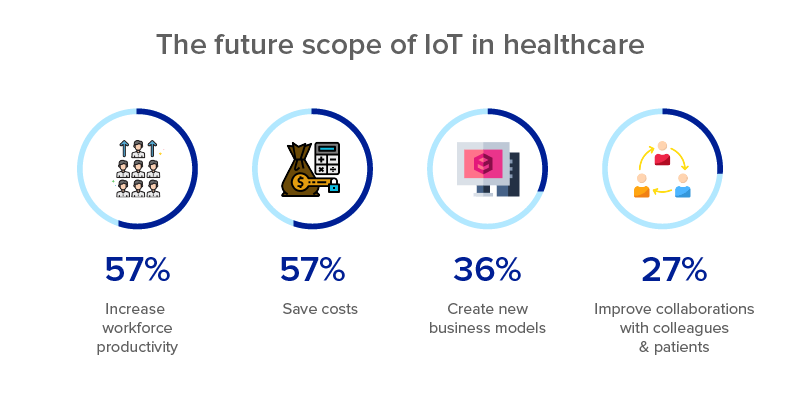
Here are a few IoT predictions for the future of healthcare:
1. Personalized Healthcare:
IoT devices make it possible to gather real-time health data, which is then utilized to develop individualized treatment regimens for each patient. The patients will have better outcomes and more successful therapies as a consequence.
2. Remote Patient Monitoring:
IoT allows healthcare providers to monitor patients remotely. This allows them to track their condition and intervene if necessary. Healthcare expenditures will be decreased since there will be fewer hospitalizations and readmissions. It is vital to know that a healthcare app development services provider works around remote patient monitoring.
3. Predictive Maintenance:
IoT devices can help healthcare providers to predict equipment failures, and the need for maintenance. This will allow them to provide uninterrupted care.
4. Telemedicine:
Telemedicine will be enabled through IoT devices. This allows patients to consult doctors remotely. Patients with mobility problems and those who live in rural places will benefit the most from it.
Conclusion
The integration of IoT into the healthcare ecosystem offers immense opportunities to transform healthcare delivery. IoT has the ability to transform healthcare by resolving issues that providers encounter. Additionally, it can promote operational effectiveness and patient outcomes.
Therefore, consult with a healthcare app development company that excels at offering a wide variety of services, including IoT app development, to fully realize the promise of IoT in healthcare.
Frequently Asked Questions
1. What is Smart Technology for Healthcare?
Smart technology, or smart healthcare, is a modern technology method of improving patient workflow. Wearable devices and IoT can provide access to a wealth of information, with automated responses. They also make it easier for parties to communicate. Healthcare now runs more quickly and accurately thanks to technology.
2. What Are the Technology Trends In The Healthcare Industry?
Below are the Technology Trends In Healthcare Industry that you must check out:
- Artificial Intelligence (AI) in Healthcare
- Integrating Data and Predictive Analysis
- Technology in Mental Health
- Remote Patient Monitoring & Virtual Care
- Digital Therapeutics
3. How Long Does it Typically Take to Develop an IoT Healthcare Solution?
The time to develop an IoT healthcare solution varies based on complexity, features, and team size. Generally, it can take 4-8 months or more. So it is recommended to consult a professional app development company who can provide you exact time estimation.
